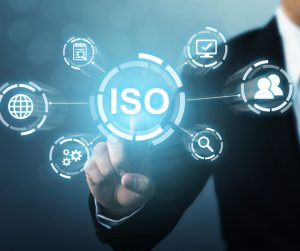What is ISO/IEC 17025 Accreditation and Why is it Important for Calibration?
When it comes to ensuring the accuracy and reliability of your instruments and equipment, choosing the right calibration lab is crucial. One key indicator of a high-quality lab is ISO/IEC 17025 accreditation, an international standard designed to ensure that testing and calibration labs operate at the highest level of competence. Read on to learn what ISO/IEC 17025 requires and why it’s important for achieving precise and trustworthy results.
standard designed to ensure that testing and calibration labs operate at the highest level of competence. Read on to learn what ISO/IEC 17025 requires and why it’s important for achieving precise and trustworthy results.
What is ISO/IEC 17025 Accreditation?
ISO/IEC 17025 is a globally recognized standard developed by the International Organization for Standardization (ISO) and the International Electrotechnical Commission (IEC). It outlines the requirements for the competence of testing and calibration laboratories. When a lab is ISO/IEC 17025 accredited, it means that it has met rigorous standards for quality, reliability, and accuracy.
For a lab to achieve and maintain ISO/IEC 17025 accreditation, it must meet several key requirements, including:
- Robust management system. The lab must have a well-documented management system that includes policies, procedures, and standard operating procedures (SOPs) to ensure consistent quality.
- Qualified personnel. The lab’s staff must be properly trained and competent to perform calibration tasks, as their skills and expertise are essential for delivering accurate results.
- Proper equipment and calibration. The lab must use and maintain equipment that is calibrated according to stringent standards. Regular calibration and maintenance ensure that equipment performs reliably.
- Validated methods. The lab must use validated methods for testing and calibration to ensure the accuracy of results. This includes regular reviews and updates to methods as needed.
- Comprehensive documentation. Accurate documentation of calibration processes, results, and any issues is required to maintain traceability and support regulatory compliance.
Why is it Important to Choose an ISO/IEC 17025 Accredited Calibration Lab?
Choosing a laboratory with ISO/IEC 17025 accreditation, such as Trident Calibration Labs, is essential for several reasons, including:
- Assured accuracy and reliability. Accredited labs must adhere to strict protocols to ensure that your equipment is calibrated accurately. This means you can trust the measurements and results provided by your instruments, leading to more reliable performance and fewer operational errors.
- Consistent quality. ISO/IEC 17025 requires labs to implement and maintain a quality management system. This system includes regular internal audits, stringent procedures, and continuous improvement practices, all of which contribute to consistent, high-quality calibration services.
- Regulatory compliance. Many industries require calibration services to be performed by accredited labs in order to comply with regulations and standards. By choosing an ISO/IEC 17025 accredited lab, you will ensure that your equipment meets regulatory requirements, thereby avoiding potential compliance issues and legal complications.
- Traceability and credibility. The standard emphasizes traceability, meaning that calibration results are linked to recognized national or international standards. This enhances the credibility of your results and provides confidence in their accuracy.
- Enhanced confidence. Knowing that your calibration provider is accredited provides you peace of mind by assuring you that the lab follows best practices, employs skilled personnel, and uses well-maintained equipment to deliver accurate and reliable calibration services.
As an ISO/IEC 17025 accredited lab with over 100 years of combined calibration experience, Trident Calibration Labs has the expertise needed to provide the highest quality calibration services for your business. Our technicians are primarily trained in the United States Armed Forces and are considered PMEL qualified. To learn more or request an estimate on your calibration needs, contact us today!
continue reading
Related Posts
5 Benefits of Online Asset Management for Calibration and Equipment […]
What Is Calibration Uncertainty and Why Does It Matter? When […]
6 Questions to Ask When Choosing a Calibration Company If […]




